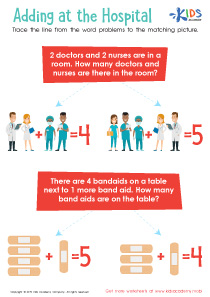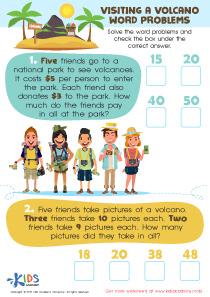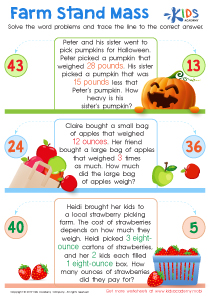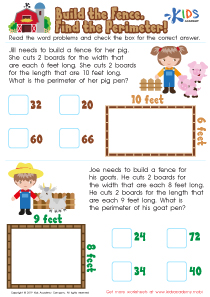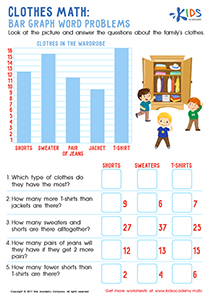Normal Two-step Word Problems Worksheets for 6-Year-Olds
13 filtered results
-
From - To
Introducing our Normal Two-step Word Problems Learning Worksheets, expertly crafted for six-year-olds to develop their problem-solving skills. These engaging worksheets challenge young minds with everyday scenarios, requiring two logical steps to find solutions. Through fun and relatable questions, children enhance their arithmetic and reasoning abilities. Each worksheet is designed to be interactive and age-appropriate, ensuring a fulfilling learning experience. Perfect for both classroom and home use, these learning worksheets offer a solid foundation in mathematics and critical thinking. Equip your child with the tools to succeed in complex problem-solving early on with our thoughtfully created resources.


Tricky Problems Worksheet: Part 1


Enrichment -2 Step Word Problems Worksheet


Adding Flower Petals Worksheet
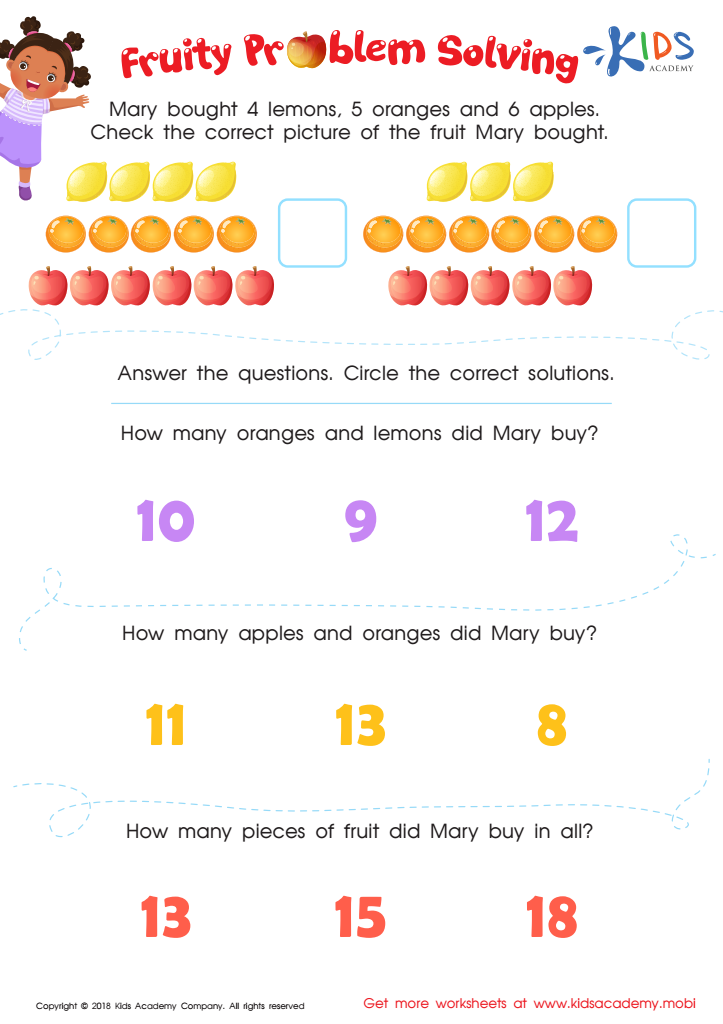

Fruity Problem Solving Worksheet
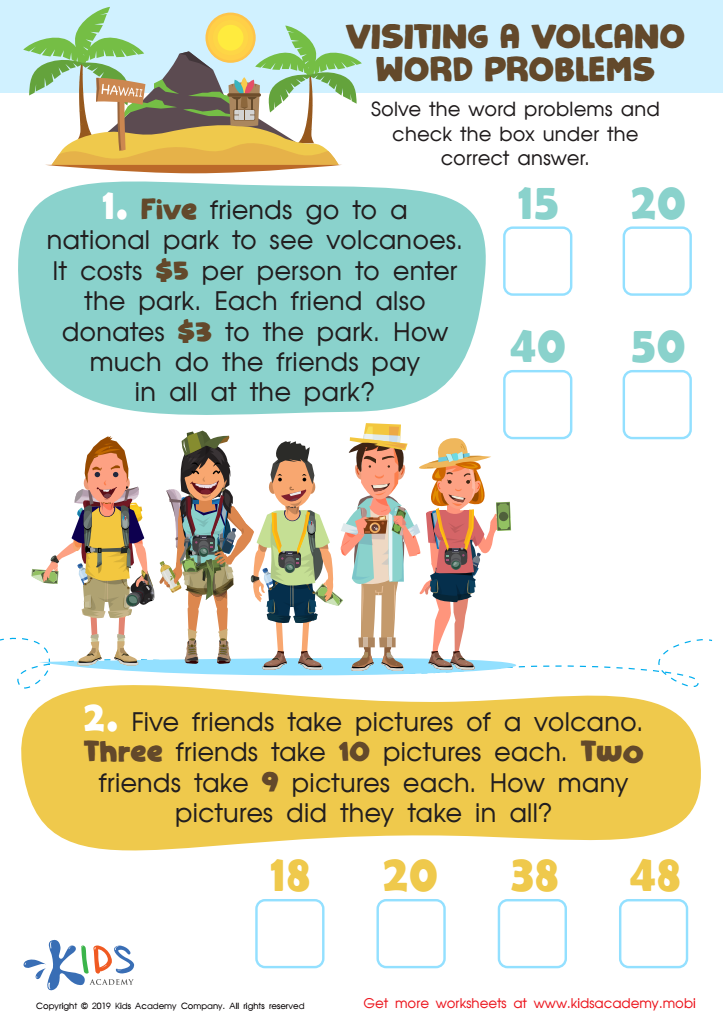

Visiting a Volcano Word Problems Worksheet
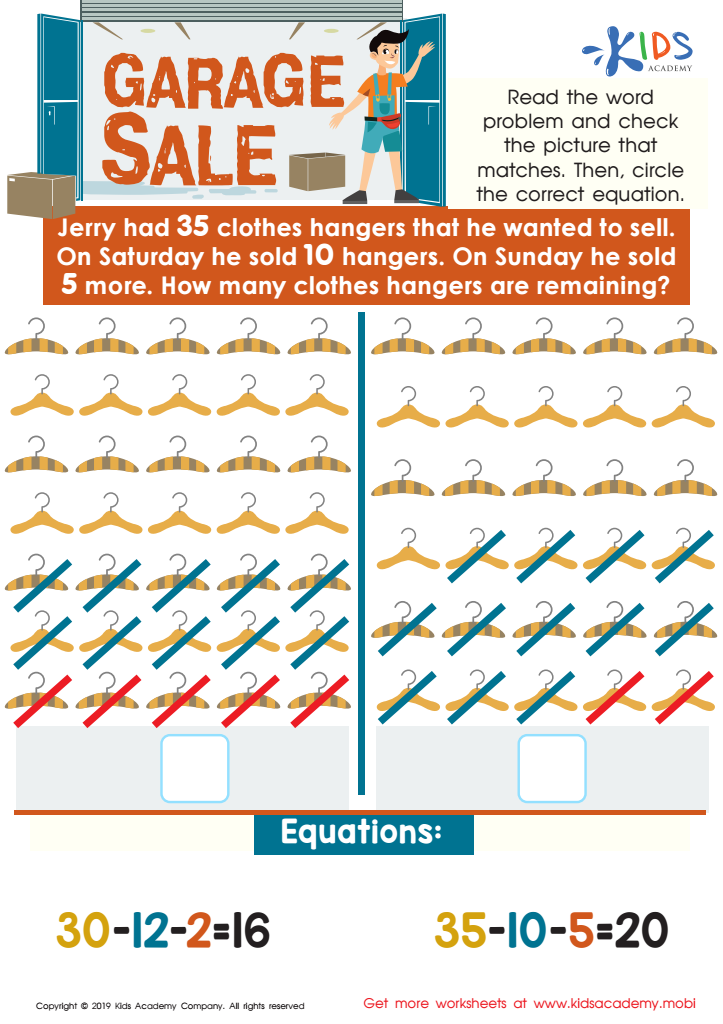

Garage Sale Worksheet


Tricky Problems Worksheet: Part 2
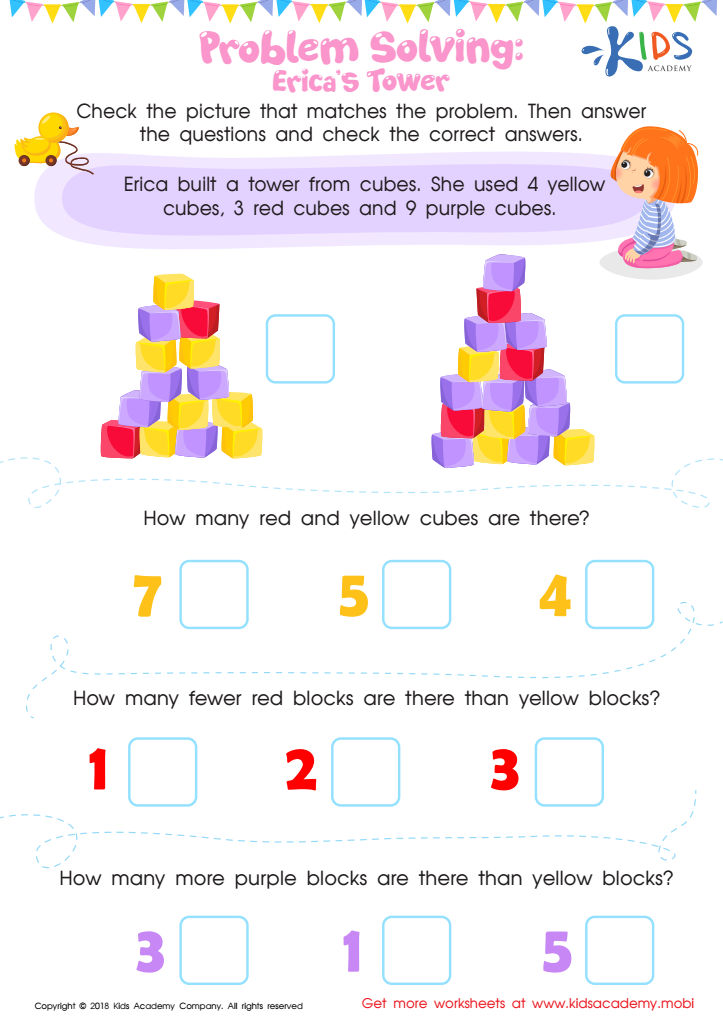

Problem Solving: Erica's Tower Worksheet
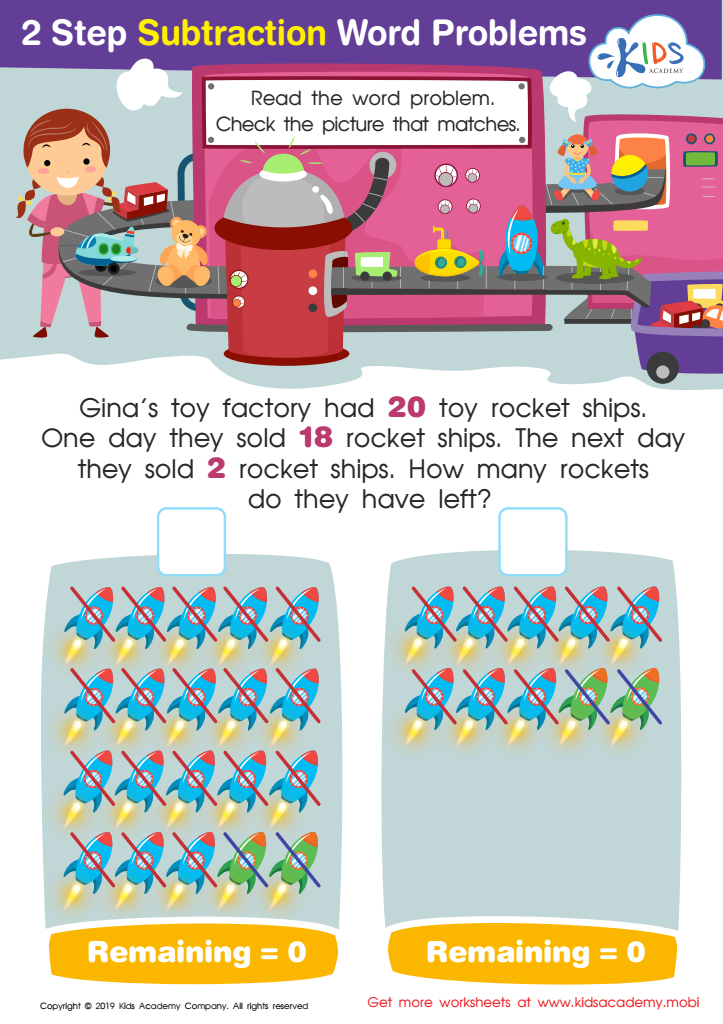

Step Subtraction Word Problems Worksheet


Solve the Problem: Trick–or–treating Worksheet


Addition and Subtraction: Word Problems Worksheet
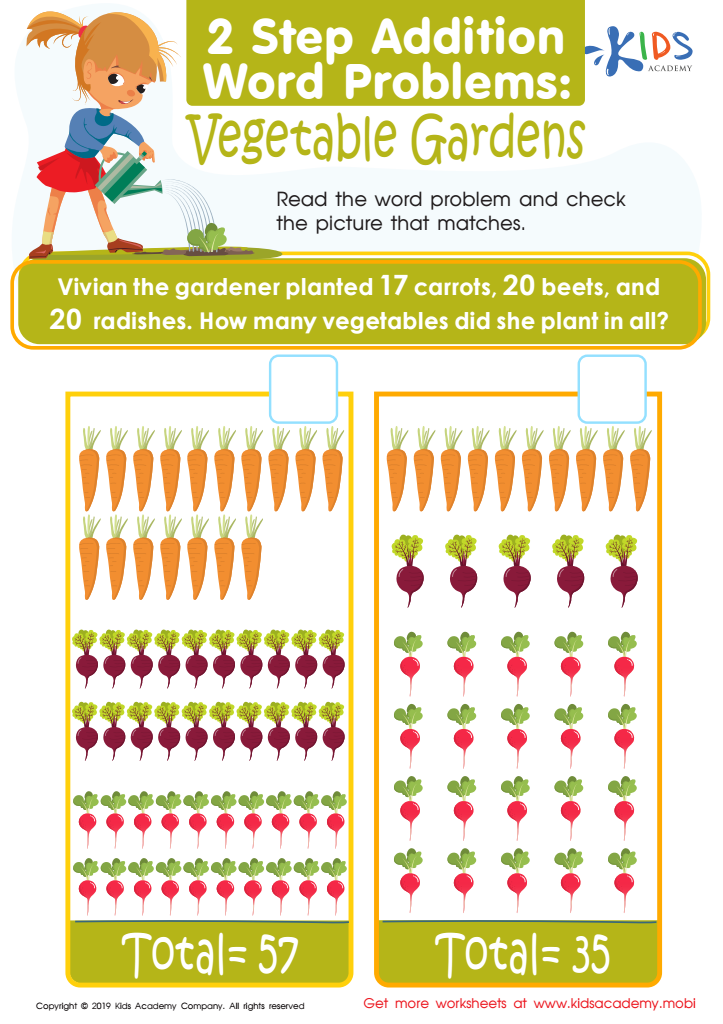

Vegetable Gardens Worksheet
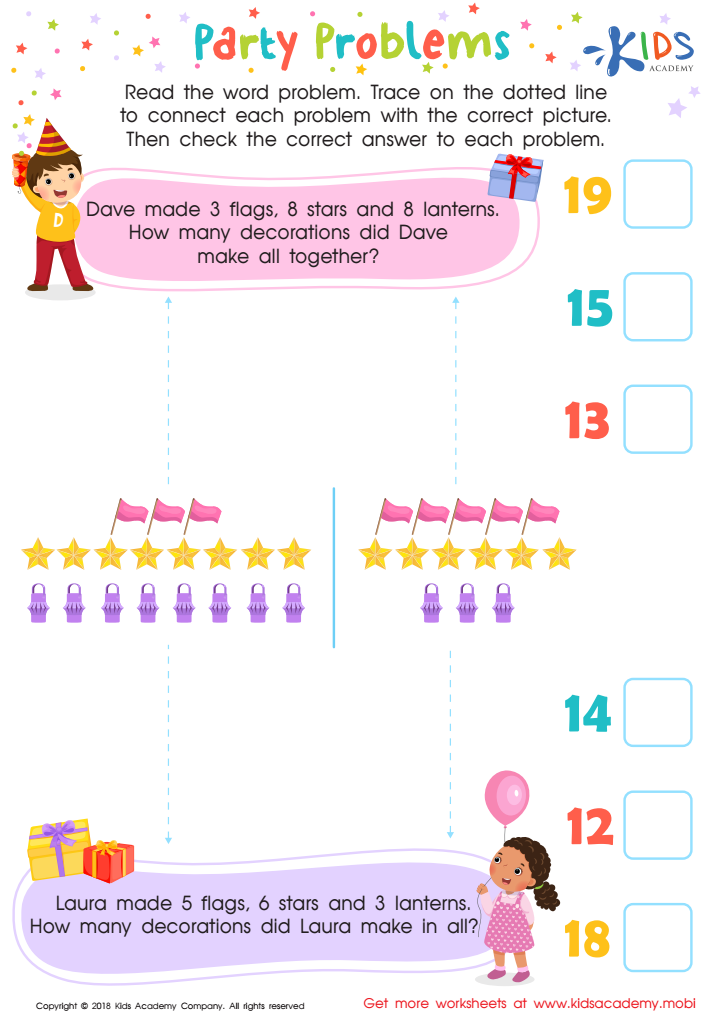

Party Problems Worksheet
Two-step word problems present a unique and beneficial exercise for young learners, particularly six-year-olds who are just beginning to deepen their understanding of mathematical concepts. Worksheets designed around these problems, often part of broader "learning printables," serve as an essential educational tool, skillfully blending reading comprehension with numerical calculations.
The primary advantage of these learning printables lies in their ability to combine literacy skills with mathematics. At the age of six, children are usually in the process of mastering basic reading and numeracy. Two-step word problems require a child to read a short story or scenario, understand what is being asked, and then determine the sequence of operations needed to find the solution. This not only reinforces their arithmetic skills—such as addition and subtraction—but also enhances their ability to comprehend and process textual information.
Moreover, these worksheets teach children the skill of problem-solving in a structured manner. Two-step word problems require children to perform two sequential actions, which is a great introduction to more complex mathematical concepts they will encounter later in their educational journey. This progression from simple to complex tasks is crucial in building their confidence and capability in handling challenges.
Learning printables that focus on two-step word problems also help in developing critical thinking skills. As children work through these problems, they learn to make logical connections and deduce the steps required to reach a conclusion. This kind of reasoning is fundamental not only in math but in everyday decision-making and reasoning.
Additionally, these worksheets are designed to be engaging and age-appropriate, often incorporating colorful graphics and relatable scenarios. For instance, a problem might involve finding out how many apples are left in a basket after some are taken away, or calculating total points scored in a game. Such contexts make the problems relatable and easier for children to engage with, thereby making learning a fun activity rather than a chore.
The versatility of these learning printables is another key benefit. They can be used in a classroom setting under the guidance of a teacher or at home with parents. This flexibility allows children to practice and reinforce their learning beyond the confines of school hours, providing continual learning support.
Furthermore, the structured practice provided by these worksheets helps in reinforcing classroom lessons. Regular practice through such printables ensures that children gradually get accustomed to the process of solving complex problems, which is instrumental in their academic development.
Parents and educators often find these worksheets useful for tracking the progress of their young learners. By observing how a child approaches and solves these two-step problems, they can identify areas where the child might need more guidance or further practice. This adaptability in instruction, based on a child’s performance on the worksheets, ensures that learning is customized and effective, catering specifically to the needs of each individual student.
In addition, these learning printables are often designed with incremental levels of difficulty, which is crucial for keeping the child’s interest and for challenging them just enough to push their boundaries without causing frustration. As children master the fundamentals, they can move on to slightly harder problems within the same framework, which helps in a smooth transition in learning phases and keeps them motivated.
Peer learning is another aspect that can be enhanced using these worksheets. In a classroom setting, children working on similar problems can collaborate and discuss their methods and reasoning. This not only helps in building social skills but also allows children to learn from each other, understanding different approaches to the same problem.
Finally, the sense of accomplishment that children gain from solving two-step word problems should not be underestimated. Completing these worksheets can boost a child's self-esteem and reinforce the joy of learning. The satisfaction derived from successfully solving a problem after figuring out two distinct steps is immense and encourages a positive attitude towards challenging tasks.
In conclusion, two-step word problems in the form of learning printables are invaluable resources for teaching young children. They not only reinforce essential arithmetic and literacy skills but also cultivate critical thinking, problem-solving abilities, and a can-do attitude towards learning. By integrating these into the educational curriculum of six-year-olds, educators and parents can provide a robust foundation for their children's future academic success and lifelong learning.
 Assign to My Students
Assign to My Students






